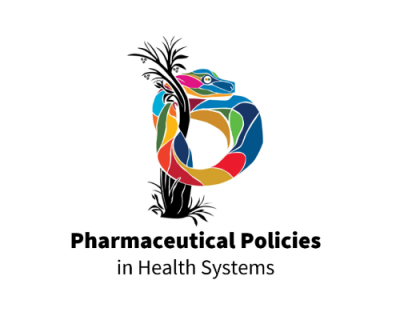Pharmaceutical policies in health systems
Date limite : 15 janvier 2027, 23:59 CET pour le cours de 2026-2027
-
Short Courses
-
Face-to-face
-
Antwerp, Belgium
-
5 crédits ECTS
-
English
-
-
Informations générales
COURSES AND PROGRAMMES CAN BE SUBJECT TO CHANGE
?START AND END DATE OF THE PHARMA COURSE ARE TENTATIVE AND MAY CHANGE
Pharmaceutical public health is an emerging field in global health, and global health needs a generation of policy-makers who understand the relevance of coherent and integrated pharmaceutical systems. Pharmaceutical systems are crucial to provide equitable and affordable access to quality essential medical products and ensure they are appropriately used by patients and healthcare providers. They are a foundational element for health systems, a pre-requisite to universal health coverage, and “a powerful means of promoting health equity”[1]. However, they face major challenges and deficiencies at global, national, and local levels, such as underfunding, resource constraints, inefficient governance, , insufficient alignment with other components in health systems, etc. How can managers and policymakers identify these challenges? How can they design measures for strengthening the pharmaceutical system within a health system, in a sustainable way? Which goals should be set? Which stakeholders should be involved? How can performance be assessed? The issues at stake require a multidisciplinary approach, and they must be seen against the dynamic interplay of societies, economies and behaviours: until and unless essential medicines, diagnostics and vaccines cease being a commodity and become affordable to all layers of society[2], universal health coverage will not be achievable.
The aim of this 3-week course is to enable participants to develop a general understanding of the individual components and functions of pharmaceutical systems, such as regulation, procurement and supply chain, financing, selection and pricing of health products, as well as how these components interact to form a cohesive system. Additionally participant will gain practical understanding of those specific components on/by which they may have a direct impact, according to their role, responsibility and context. The course will also introduce participants to various frameworks and value-based approaches for assessing pharmaceutical systems, such as equity, health law and human rights. Specialists in specific fields will be guided to broaden their knowledge and expertise and adopt a multidisciplinary perspective ensuring it is well integrated into a systems-based approach.
To achieve the multiple levels of understanding, and to enable participants to engage in relevant dialogue during the course, but also with different stakeholders in their respective roles, we aim to reduce jargon and to harmonize language. Given the interdisciplinary nature of Pharmaceutical Public Health, it is expected that participants will need to interact with a wide range of stakeholders, including researchers, high-level policymakers, lawyers, advocacy groups, pharmaceutical regulators, technical officers, donors, procurement and supply officers, health insurers, front-line workers, patients, and civil society organizations.
The lectures are delivered by a diverse teaching faculty, including experts from the ITM and invited experts from other universities and institutions.
The short course is targeting students from high-, middle- and low-income countries working at different levels of the health and pharmaceutical systems, including the Ministry of Health, health programmes, regulatory agencies, NGOs, global health initiatives and other donor agencies, pharmaceutical procurement agencies, health insurance, etc.. Importantly, the course is not only targeting pharmacists or specialists in specific pharmaceutical topics, and is open to other interested professionals such as health economists, social scientists and others. Participants and facilitators will benefit from the rich exchange of experience between professionals bringing the perspective of different expertise, roles and levels in the health systems.
This expert short course is chaired by Prof Raffaella Ravinetto and by Belen Tarrafeta (ITM), supported by Dr Saleh Aljadeeah (ITM), and by Dr Hazel Bradley and Dr Renier Coetzee (University of the Western Cape, South Africa).
[1] Bigdeli 2014
[2] Olliaro et al, doi:10.4269/ajtmh.19-0645
Objectifs d'apprentissage
At the end of the course, participants will be able to assess dysfunctions within pharmaceutical systems that impact access, equity, quality, and the appropriate use of health products. They will be equipped to identify root causes and propose strategies, policies, and interventions to strengthen the pharmaceutical system or its sub-components from a public health perspective and through a human-rights lens. More specifically, participants will be able to:
- Identify challenges and barriers within pharmaceutical systems and their components in the broader health system context.
- Evaluate the impact of pharmaceutical systems on patient outcomes and public health goals, while understanding their interconnections with other health system components. Additionally, critically assess these systems for their contributions to equity and the advancement toward Universal Health Coverage (UHC)
- Articulate interventions aimed at strengthening pharmaceutical systems, considering factors such as sustainability, social acceptance, legal requirements, political support, and geographic constraints. This should involve critical assessments of equity within these systems and the interconnections with other health system components.
- Apply principles of good governance and transparency, and understand the use of metrics to evaluate the performance of pharmaceutical policies from a multidisciplinary perspective.
- Communicate policy recommendations effectively to policymakers, including non-specialists.
- Build a professional network in the field of pharmaceutical public health.
